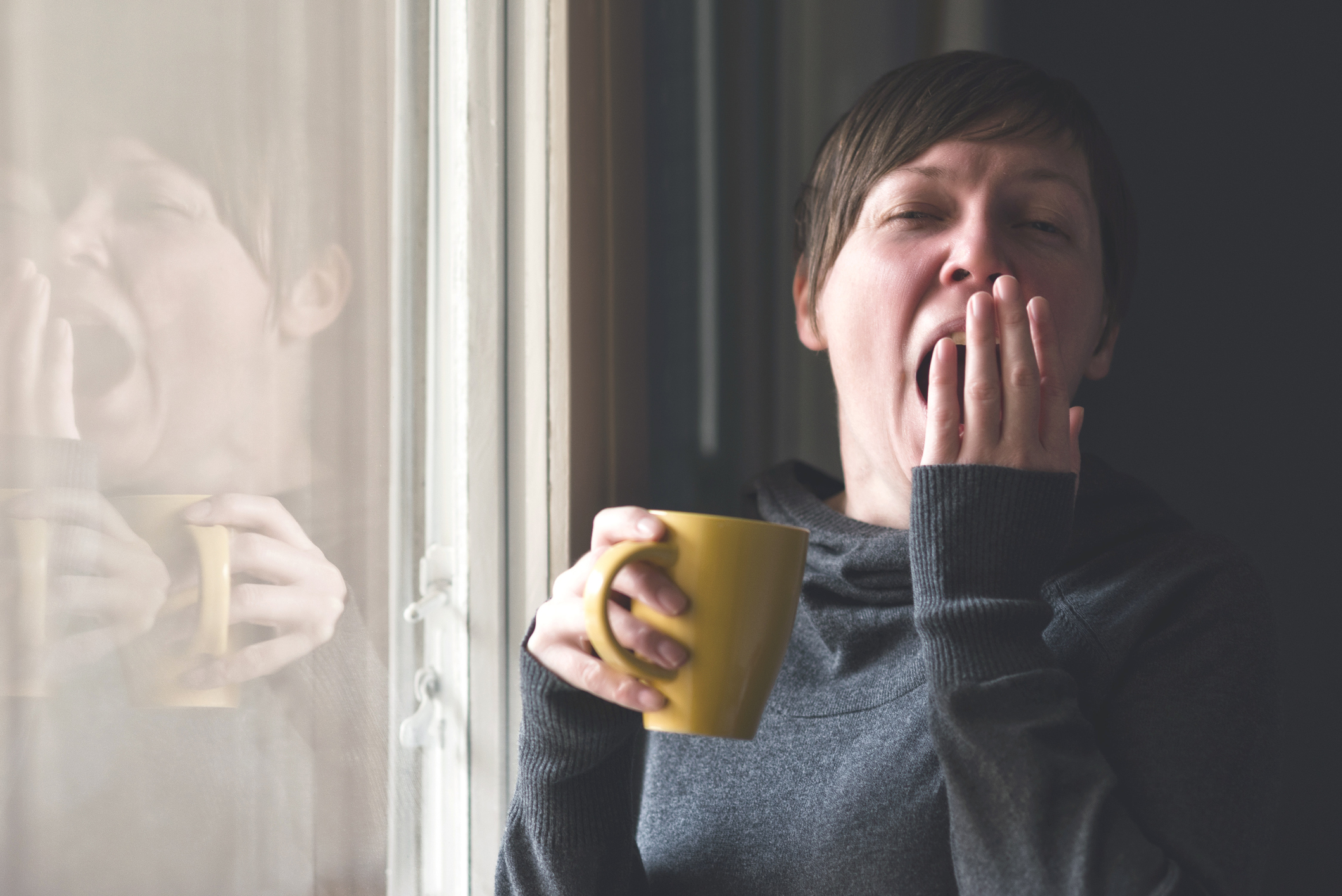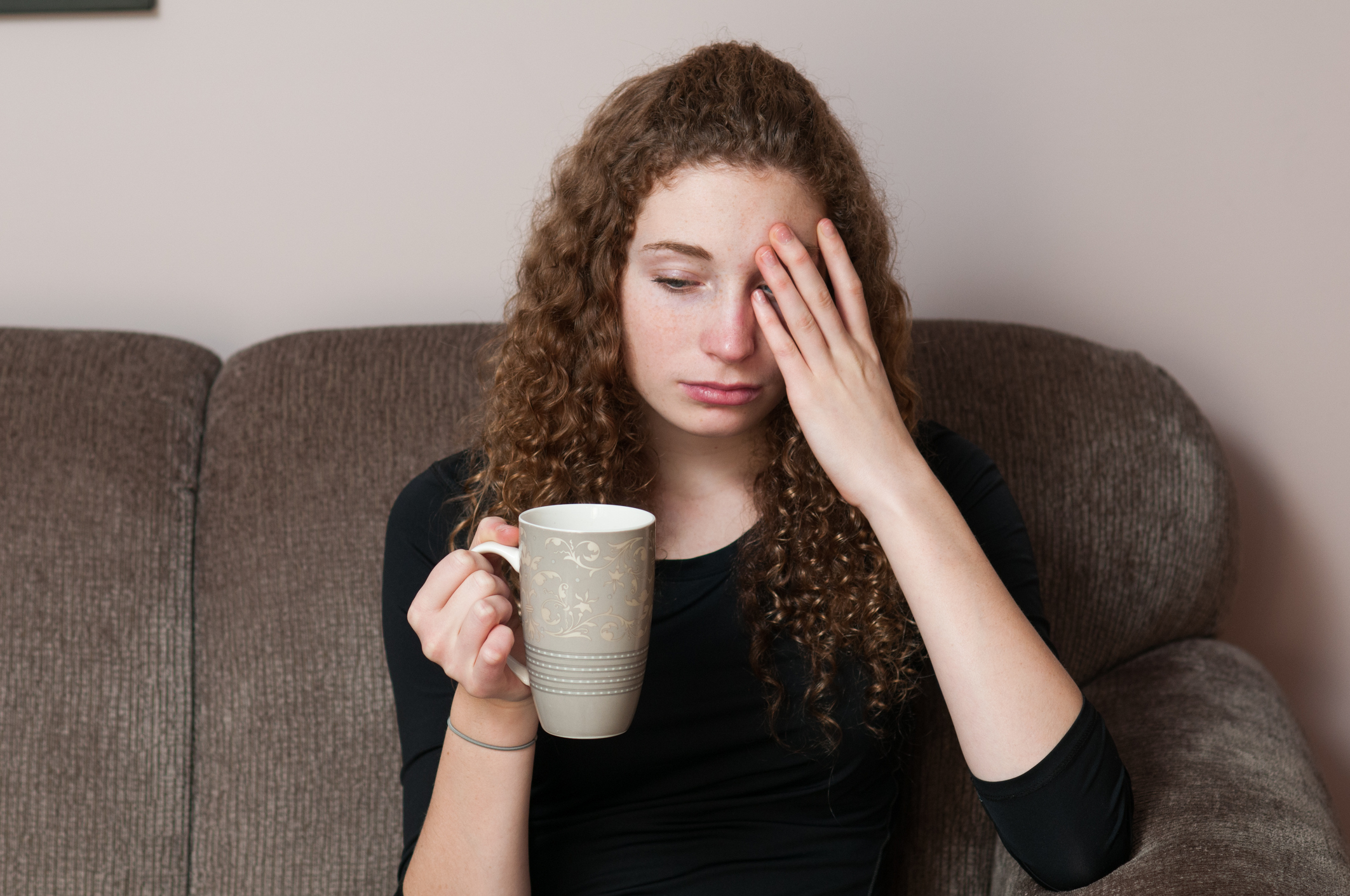If you’re anything like me, you might have a love-hate relationship with coffee.
Love it, because it’s delicious and an energizing start to your morning.
Hate it, because it overstimulates and ultimately causes energy crashes and hormone dysfunction when drunk in excess.
And if you’re reading this blog, you’re probably wondering if coffee is bad for your health, particularly your hormones.
Coffee has been elevated to “superfood” status after being linked to longevity and enhanced mental performance. Dave Asprey, creator of the Bulletproof coffee craze, states that “It’s [bulletproof coffee] a gateway drug for taking control of your biology.”
Many in the health and wellness world and even celebrities are jumping on the Bulletproof bandwagon these days. But is coffee really all it’s cracked up to be? The answer is not so simple.
The potential downsides of Coffee
Coffee has developed a “health halo” recently. And it’s true, there are some potential benefits to regular coffee consumption in the right context.
The health benefits of coffee are mainly related to its high polyphenol content. Polyphenols are phytochemicals in plants that help combat oxidative stress and inflammation in the body. Polyphenols even benefit gut health due to their ability to promote the growth of good bacteria.
But coffee also has a lot of caffeine, which can cause negative health consequences in some individuals. Genetic factors affect how well you tolerate caffeine.
Generally speaking, slow metabolizers of caffeine should avoid caffeine. (Unfortunately this is me!) In addition, coffee can initially mask, and ultimately exacerbate HPA axis dysfunction or “adrenal fatigue”.
In this post, I’ll lay out coffee’s potential effects in the body, especially how it influences hormones. Then you can determine if coffee consumption is right for you… or if you should skip this delicious but potentially detrimental beverage.
And remember, if coffee isn’t right for you, there are alternatives that you can try that provide polyphenols and hormone boosting effects without the negative side effects of high caffeine levels.
Keep reading to learn why coffee consumption is a highly individual decision, and how to figure out if you should be drinking coffee with any regularity.

How caffeine metabolism affects coffee tolerance
As I mentioned above, genetics can make or break your ability to tolerate coffee. Your genes influence whether you are a fast or slow metabolizer of caffeine.
Coffee is metabolized in the liver by an enzyme that is encoded in the CYP1A2 gene. Around 50% of the population in the US have a variation of this gene that makes them break down caffeine more slowly.
As I mentioned earlier, I’ve had genetic testing via 23AndMe that identifies me as a slow metabolizer.
Coffee consumption by slow metabolizers is associated with an increased risk of heart disease, hypertension and impaired fasting glucose.
If you’ve noticed problematic side effects when you drink coffee, such as insomnia, anxiety, feeling jittery and increased heart rate, you may be a slow metabolizer of caffeine too.
In these cases, it’s probably best to limit or even avoid caffeine in general. (Trust me, I know this stinks. I’ve had to accept this in my own life as a slow metabolizer!)
But even if you are a fast metabolizer of caffeine, it might not be a good idea to rely on coffee to get you through your mornings. Treating exhaustion with a daily caffeine fix may be masking or exacerbating hormonal disturbances.
Does Coffee really “energize” you?
Many people feel they can’t start their day without coffee. You too may need that energy boost to function normally. Without it, you feel flat and exhausted, and unmotivated to take on the day.
So how does that cup of coffee turn you into a productive and functional human in the morning?
Is it really providing your body with a true energy boost?
Caffeine doesn’t really give you real “energy”. Instead, caffeine makes you feel energized by blocking your body’s ability to feel tired.
Caffeine blunts our drowsy feelings by disrupting adenosine metabolism. Adenosine acts as a depressant in the central nervous system, which promotes sleep and suppresses arousal. Adenosine essentially slows down the activity of neurons causing a feeling of drowsiness.
Adenosine plays a key role in the sleep-wake cycle and rises as the day progresses to encourage sleep at night. When we go to sleep, the adenosine is broken down to prevent grogginess in the morning, so we wake up feel refreshed.
Caffeine strongly resembles adenosine and binds to the adenosine receptors that saturate nerve cells. By reducing the number of available adenosine receptors, only a small amount of adenosine can bind to the receptors.
This results in you feeling less sleepy. (Not more energized.)
Over-expression of the adenosine receptor is also seen in individuals with chronic stress and HPA axis dysfunction. It’s possible this adenosine receptor upregulation may be an adaptive response to chronic stress.
In practical terms, high adenosine activity is your body’s way of telling you that you’re tired and need to slow down.
Unfortunately, many of us ignore this signal from our body to slow down.
We simply caffeinate to get through the daily fatigue and repeat the cycle the next day.
Coffee blunts this “I’m tired” message from your body, but doesn’t provide your body true energy.
That’s why coffee is just a band-aid for low energy levels.
It can be easy for coffee to become a crutch. Resolving the underlying stressors that are causing your fatigue is the better strategy to achieve optimal health.

Coffee activates your stress hormones
As I discussed earlier, many coffee drinkers rely on caffeine to fight fatigue. But they fail to address the stress that’s causing their fatigue.
HPA axis dysfunction is often the root cause of chronic fatigue, which is clearly not a coffee deficiency.
And coffee not only masks HPA axis dysfunction, it has the potential to exacerbate it.
Would you like to save this post?
Your email address is 100% safe and will never be sent spam.
A wide range of caffeine levels have been shown to activate the HPA axis and increase cortisol levels. Doses as low as 2 mg/kg have been shown to activate the HPA axis.
Considering that your average Grande Starbucks coffee has over 300 mg of caffeine, it wouldn’t take much to negatively affect your HPA axis functioning.
Caffeine’s effects on stress and anxiety levels appear to be dose-dependent. Small doses have been shown to have a relaxing effect related to some positive reductions in neurotransmitter activity. Larger doses have been shown to induce anxiety. Genetic factors are also a potential factor on whether coffee will cause HPA axis activation.
If you struggle with cortisol dysregulation or “adrenal fatigue”, it is best to steer clear of coffee while you heal.
It may be difficult to ditch that morning cup of joe when you rely on it for energy. But focusing on repairing your HPA axis and building your stress tolerance is a much better solution to low energy levels.
Coffee can impair thyroid function
Coffee also has the potential to suppress thyroid function. High cortisol levels can wreak havoc on all the hormones in the body, including thyroid hormones. Coffee can increase cortisol levels, which can cause a down regulation of thyroid hormones.
The stress response can reduce thyroid function through a couple different mechanisms. First, HPA activation causes cytokine release that have been shown to lower thyroid stimulating hormone (TSH). This hormone is released from the brain and tells the thyroid to make more hormones. Therefore, low TSH will yield lower thyroid hormone production.
Second, high cortisol levels prevent the conversion of the inactive thyroid hormone (T4) into the active form (T3). This reduction in active form can lead to hypothyroid symptoms like weight gain, depression, dry skin, fatigue and hair loss.
Third, chronic activation of the stress response has also been shown to decrease the sensitivity of the thyroid receptor. With thyroid resistance, the thyroid hormones are sending messages to the cells, but the cells can’t hear the message.
If you are sensitive to caffeine in any way, and have a thyroid issue, you should definitely take a break from your regular coffee drinking.
You also have to be careful if you are a coffee drinker who takes thyroid hormone medication. Drinking coffee within 60 minutes of taking thyroid hormones can reduce absorption of the medication.
A recent study showed that those who consume coffee when they took their thyroid medicine had a 25-57% drop in T4 compared to non-coffee drinker. It’s important if you are on thyroid medication to wait at least 60 minutes after taking your pill to drink coffee.

Coffee delays your sleep cycle
Sleep and circadian rhythm entraining are non-negotiable for good health. You may already be focusing on sleep hygiene, including staying clear of bright screens at night or sleeping in a cold, dark room. But for good sleep, it’s just as important to skip those afternoon coffee breaks.
A “within subject” experimental study kept five people under highly controlled conditions for 49 days. These test subjects were exposed to various treatments before bedtime: either a double espresso-caffeine dose, exposure to bright or dim light, or a placebo.
The results? The caffeine delayed the subject’s internal clock by 40 minutes! This shift was about half as long as 3 hours of evening bright light exposure, showing that avoiding caffeine late in the day is an important choice for optimizing circadian rhythms.
The researchers later cultured cells to determine how caffeine was lengthening the internal clock. It turns out that caffeine’s action on the adenosine receptor also increases an intracellular messenger molecule, cyclic AMP.
Cyclic AMP plays a pivotal role in the workings of our inner clock system. The rise in this molecule from caffeine intake is what causes that substantial delay in our circadian rhythm.
Remember, caffeine blocks you from feeling tired. So it isn’t a surprise that circadian rhythm and sleep disturbances are linked to caffeine intake.
Shorter sleep is associated with greater caffeine consumption, and that consumption is greater in adults with reduced sleep quality.
Even when you drink coffee away from bedtime it can still negatively influence sleep. One study found that consuming caffeine even 6 hours before bedtime reduced total sleep time by 1 hour. That’s crazy!
Individuals with HPA axis dysfunction and chronic fatigue are already prone to sleep dysfunction. Adding coffee to the mix is like throwing fuel on the sleep deprivation fire.
If you do choose to drink coffee, make sure you have it at least 6 hours before bed, if not much sooner. Because the half life of caffeine is approximately 5 to 6 hours, I’d suggest having your last coffee at least 10-12 hours before you intend to go to bed.
This especially applies to older adults, as our ability to process caffeine slows down as we age.

Coffee may alter your sex hormone metabolism
There isn’t a lot of research on how coffee and caffeine affect sex hormones, but there is strong evidence that coffee increases the amount of sex hormone binding globulin (SHBG). SHBG is a protein that binds to estrogens and androgens in the blood. To be used by the cells, sex hormones must be free and not bound to SHBG.
Higher levels of SHBG will leave less hormones available for the cells. Total and free luteal estradiol (estrogen) levels were lower in woman with higher caffeine/coffee intakes compared to those with low caffeine intakes.
This estrogen lowering effect may be helpful in individuals with estrogen dominance, but may cause issues in individuals who might be deficient in estrogen. This especially applies to women with irregular or absent menstrual cycles.
There’s conflicting evidence on how caffeine/coffee may influence testosterone levels. There is suggestive evidence that free testosterone will decrease as caffeine intake since it will bind with the higher levels of SHBG.
Testosterone is more strongly attracted to SHBG compared to estrogen. This androgen-binding effect may provide some benefits for individuals with high androgens such as in PCOS.
However, there is also some evidence that higher levels of caffeine can potentially raise testosterone levels. It has been hypothesized that caffeine may inhibit aromatase, an enzyme responsible for converting androgens to estrogens. With less ability to convert androgens to estrogens, testosterone levels can be higher.
And of course let’s not forget the role of adrenal stress in causing its own form of PCOS.
As you now know, caffeine stimulates the HPA axis, which in combination with other life stressors, can lead a woman to develop adrenal PCOS. This can cause its own variety of hormonal imbalances that are impacted by individual caffeine sensitivity.
Higher caffeine/coffee intake definitely has the potential to affect hormone metabolism. These hormonal shifts can be positive or negative depending on your typical hormone pattern. Being aware of your state of hormonal health and how coffee may be affecting it is crucial for making informed decisions about your caffeine consumption.
Bottom Line?
While there are potential benefits from the polyphenols in coffee, the benefits don’t always outweigh the negatives. This is especially true for women experiencing hormonal issues, specifically adrenal, thyroid, and sex hormone imbalances.
Coffee isn’t a solution for chronically low energy and may actually exacerbate it.
If you are a slow metabolizer of caffeine, have cortisol dysregulation and/or sleep problems, it may be best to find an alternative for coffee in your diet!
Now I want to hear from you… have you removed coffee from your life in an attempt to improve your health? What were the results? Share your story in the comments below!
This post may contain affiliate links. If you click on a link and make a purchase, I may receive a small commission.



+ show Comments
- Hide Comments
add a comment